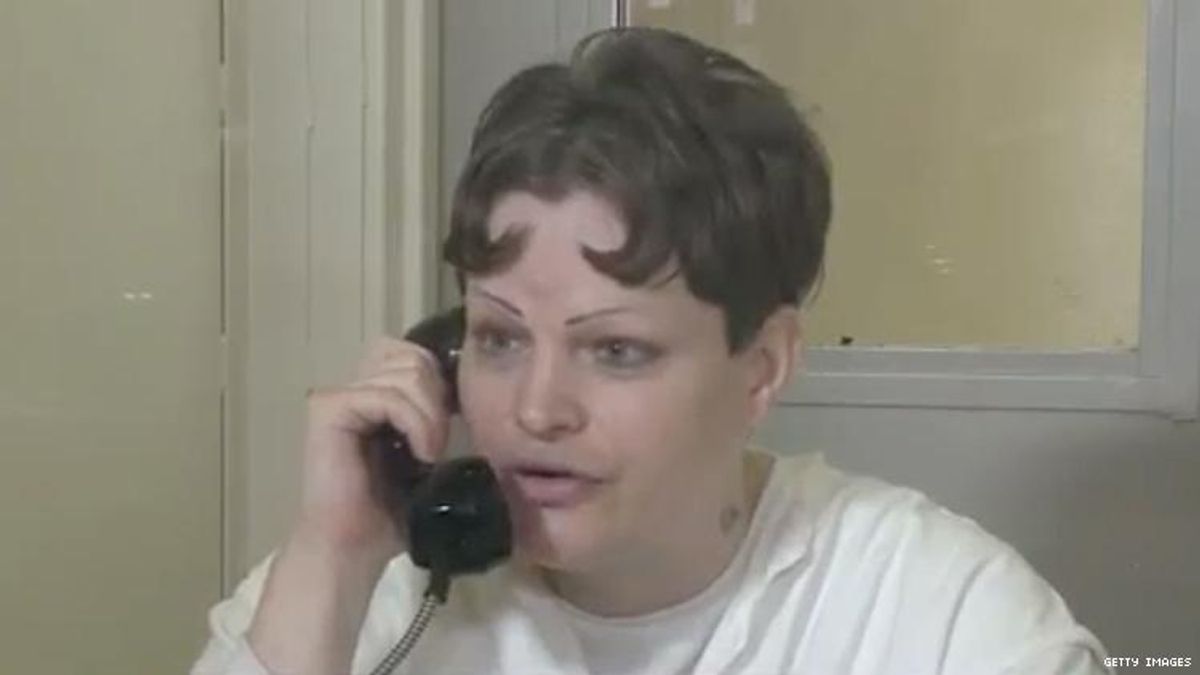The U.S. Supreme Court has chosen not to hear the case of a transgender inmate who filed a civil rights lawsuit when Texas prison officials denied her request for gender confirmation surgery.
Vanessa Lynn Gibson, 41, filed the suit against the Texas Department of Criminal Justice earlier this year, arguing it was violating her constitutional right against cruel and unusual punishment guaranteed in the U.S. Constitution's Eighth Amendment.
Although Gibson was provided with hormone therapy while behind bars, the prison denied her request to be seen by a specialist who may have been able to confirm the urgency of the operation. This decision, her lawyers stated in filings with the Supreme Court, could be life threatening.
Gibson eventually sued the TDCJ, but her claim was rejected in March by the New Orleans-based 5th Circuit Court of Appeals.
Judge James Ho, a Trump appointee, ruled at the time that it was not cruel and unusual punishment to deny her gender confirmation surgery because it didn't meet the needs of "medical care so unconscionable to fall below society's minimum standards of decency."
"A state does not inflict cruel and unusual punishment by declining to provide sex reassignment surgery to a transgender inmate," Ho wrote in his decision. "Under established precedent, it can be cruel and unusual punishment to deny essential medical care to an inmate. But that does not mean prisons must provide whatever care an inmate wants... Necessity and efficacy of sex reassignment surgery is a matter of significant disagreement within the medical community.... Respected medical experts fiercely question whether sex reassignment surgery, rather than counseling and hormone therapy, is the best treatment for gender dysphoria."
Gibson's attorney, Maxwell S. Kennerly, spoke out in defense of his client following Ho's ruling earlier this year.
"Although some people claim 'trans rights' are 'special rights,' the movement for 'trans rights' is really an effort to provide transgender persons the same rights everyone else has," Kennerly wrote in his blog Litigation & Trial."All the plaintiff wanted in her lawsuit was the same treatment every prisoner is entitled to have under the Constitution, i.e., appropriate treatment for what everyone agreed was a 'serious medical need.'"
Kennerly added that Judge Ho's opinion was "outrageous, an example of the very worst sort of result-driven judicial activism."
According to court papers, Gibson has suffered from severe depression, engaged in self-mutilation, and attempted suicide since she was first incarcerated in 1995 for aggravated assault. She was later convicted of murdering a fellow inmate in 1997.
The Pluralist reports that in Gibson's SCOTUS filing, her attorneys cite a 1976 Supreme Court ruling that if officials ignore serious medical needs of prisoners, they're violating the Eighth Amendment because it is an "unnecessary and wanton infliction of pain."
"I feel like my constitutional rights are being violated because [the TDCJ is] indiscriminately denying us medical care for no reason," Gibson said in an interview with KWTX, Waco's CBS affiliate. "Having male genitalia, it makes me literally sick. I'm talking about to the point that I hate my life and it's an everyday thing."
According to KWTX, there are 144,000 inmates in the state of Texas (20,000 more than in California). Of that number, 212 prisoners in Texas identify as trans.
The Supreme Court has yet to comment on why they chose not to hear the case. Gibson will become eligible for parole in 2021.













































































